There are periods of time that the world will look back on, that will be recorded in history books and remembered in the hearts of those who lost loved ones, those who were affected by it, and those upon whom it left scars. The COVID-19 season is one of these unprecedented time periods, and the impact of this pandemic has been far-reaching.
In country after country, we see coffins lining up, each representing a life and a circle of influence, and we witness tears from those left behind. In Africa and most of the developing world, the global lockdowns enforced to slow the spread of the virus have unleashed a completely different form of devastation. Millions have been forced to stop working due to various shutdowns, leaving them unable to provide for their families. With many already on the brink of poverty, relying on their daily wages to support unemployed family members and having no access to credit (except through loan sharks), the poor have been the hardest hit.
During this challenging time, I have had the incredible privilege of being a part of helping the most needy, forgotten, and destitute through the work of Love Justice. We have been partnering with trusted contacts from other NGOs, working together to find people who are in desperate need of help.
Lehae
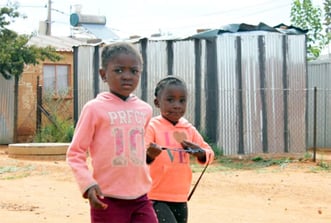
The call to the neediest took us first to a low-cost housing project located in Lehae on the outskirts of Johannesburg. Dust roads lined by small government-built houses led us past kids playing soccer on an empty patch of grass while others were shooting pool under a corrugated iron structure. We were happy to see the shiny face of Lebo, one of our trusted contacts. He guided us to his house, where a few of the community leaders were waiting for us.
Lebo explained, “The people of Lehae are desperate during this time. There are 20,000 people living here, and about 93% are unemployed, living on grants. Normally people can get ‘piece jobs’—a day here, a day there—but since lockdown, no one has any work, and the grants are finished. People have been stopped from helping themselves. Crime has increased, too, as this is how people are surviving now.”
Lebo works for Roots and Shoots, an education program founded by Jane Goodall providing reading plans, mentorship programs, and more to children living in the Lehae area. Due to the schools being shut down, these children have lost their one consistent meal each day. A group of community leaders have come together to try to find ways to get food to the people during this time. It was a great pleasure to partner with these leaders and to be a small part of providing 150 individuals with enough food to last them for three weeks.
Diepsloot
Our search for the needy led us next to Diepsloot, one of the most infamous townships and slum areas in South Africa. Diepsloot is home to 450,000 people living in a variety of government-built brick homes and corrugated iron shacks, positioned amid litter, dust, and communal outside toilets.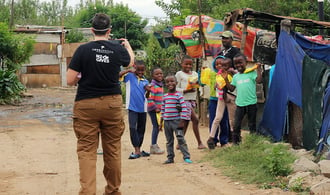
Foreigners searching for a better life from poverty-stricken countries flock to Diepsloot as a first port of call when arriving in South Africa. The land is flat with vacant surrounding areas, so new arrivals can build a makeshift home on the outskirts as they try to make a life for themselves. Diepsloot is notorious for its crime, murders, “mob justice,” and violence against women, yet it is the only place many people can afford to live.
We drove through crowds of people to the entrance of the community center. The word had spread that food was going to be distributed. Sheila, our trusted contact, social worker, and resident of Diepsloot, said, “We will wait for the police.” She explained, “Yesterday the people almost overturned a car trying to get food. People are desperate.”
In this distribution effort, we were partnering with the Wot-If Trust. They had contacted the families of the children that they work with in an after-school program, and we were expecting to feed 500 people. Many of them are grandmothers, looking after their orphaned grandchildren who have HIV. The crowd started growing (see video below), with people pushing at the gate, eager not to be left out of the distribution.
To accommodate the swelling crowds, we cut each food portion in half. We handed out bags of e’Pap, a highly fortified porridge aimed at providing the highest level of nutrition to those who are not getting sufficient nourishment. During the distribution, we spoke to many grandparents, and we learned that this pandemic has hit them hard. They told us that they were worried about their own health, knowing they were at the highest risk of getting the virus, yet they knew they needed to get out to find food for their grandchildren who were now not receiving a meal at school.
The lockdown has also increased crime as people struggle to eat. One recipient shared, “The other night I went to the toilet, and I got robbed. They took my pants, my TV, my everything.” My heart broke for this frail, old man standing before me, so vulnerable and so weak. Yet, I had the joy of blessing him with something and helping him during one of the darkest seasons of his life.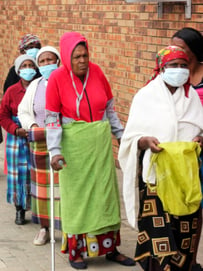
Another grandmother I spoke to shared how she has four grandchildren to look after. She has HIV and needs to eat every day to ensure she keeps up her strength. She said, “I came yesterday and waited for food, but I didn’t get anything.” By giving her nutritious porridge that day, we knew she would get the vitamins and minerals her body needs to weather the stress she has been under trying to provide for her grandchildren.
Alexandra
The lockdown took us next to Alexandra, a township opposite Sandton, one of the richest financial districts in all of Africa. Alexandra’s overpopulation, squatter camps, and litter stand in stark contrast to the multi-million rand buildings, expensive suites, and flashy cars located only two kilometers up the hill. Many of the people of Alexandra are daily wage earners, reliant on construction, domestic work, and gardening—all of which have been stopped during the lockdown. (Image of Philemon, our trusted contact)
My host was Philemon, a peaceful man of God who is committed to making a difference in his community. He shared, “I used to be a naughty guy when I was younger. I ended up in prison for five years. But it was there that I found the Lord Jesus.” I was amazed as I watched this man loving the poor and the weak and searching out those in need. He has clearly been radically transformed, and the heart of God propels him into uncomfortable spaces. I felt incredibly privileged to see the handiwork of God in him.
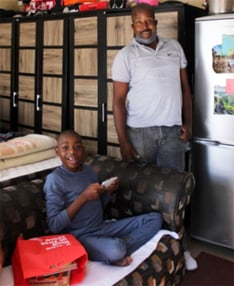 I love being reminded of how God works and that He is, in fact, working always, everywhere—even in the forgotten, dark places He is bringing His transforming power. Philemon took me to squatter camps where a group of women had made a makeshift kitchen designated to feeding the children one meal each day. Philemon explained, “We go around asking for rice or Pap, enough just to fill their tummies. This lockdown has been difficult because no one is working, and no one has any money.”
I love being reminded of how God works and that He is, in fact, working always, everywhere—even in the forgotten, dark places He is bringing His transforming power. Philemon took me to squatter camps where a group of women had made a makeshift kitchen designated to feeding the children one meal each day. Philemon explained, “We go around asking for rice or Pap, enough just to fill their tummies. This lockdown has been difficult because no one is working, and no one has any money.”
Thankfully, we were able to add to their supplies by providing soup and soya mince, causing much delight in that little kitchen and resulting in many full stomachs.
Next, we headed to a large warehouse in Alexandra. My stomach churned as I realized this looming, dark structure was home to 18 families, all foreigners from Malawi and Zimbabwe. Washing hung in the parking lot as a man unlocked the gate for us to drive in. People emerged from the darkness, quiet and unassuming. A man, Josiah, hobbled out on crutches, his legs disabled from arthritis.
In Alexandra, foreigners are often on the receiving end of xenophobia and experience violent attacks and looting of their properties as locals express their anger at them for taking their job opportunities. Foreigners are also unable to receive government food packages or grants, so the lockdown has been especially hard for them. “I have been in South Africa for nine years, working as a diesel mechanic,” one older man shared, his wife by his side. “We have been living off donations from Philemon, thankfully.”
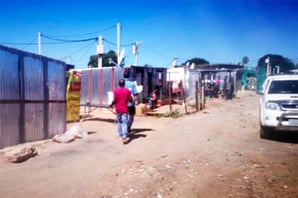
Philemon carefully laid out the provisions on the back of his truck, four packs per family. A representative from each family came to the truck, did a little “thank you” bow to show their gratitude, and then moved on.
As Philemon drove me back to my car, I thought of the unmerited favor on my life—how I had been born to my family and raised in my country instead of a poverty-stricken country like those who are now living in that warehouse in Alexandra, a home that they would consider to be infinitely better than the one they had come from. I thought about how I was able to leave those cold cement floors and go back to my full fridge and comfortable home. I wondered what God expected of me, having been given so much, and what was expected of them, having been given so little.
Please visit here for more stories about the people we are serving through our relief efforts and to find out more information about how you can get involved and powerfully impact lives with hope.
*All content, data, and statistics current at the date and time of publishing.
-1.png?width=500&height=500&name=LJI_MAINLOGO_WhiteBackground%20(1)-1.png)


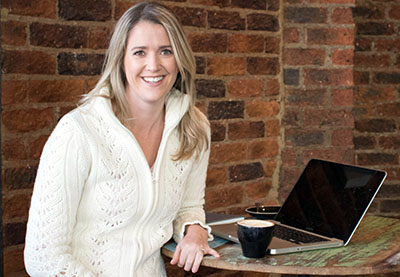
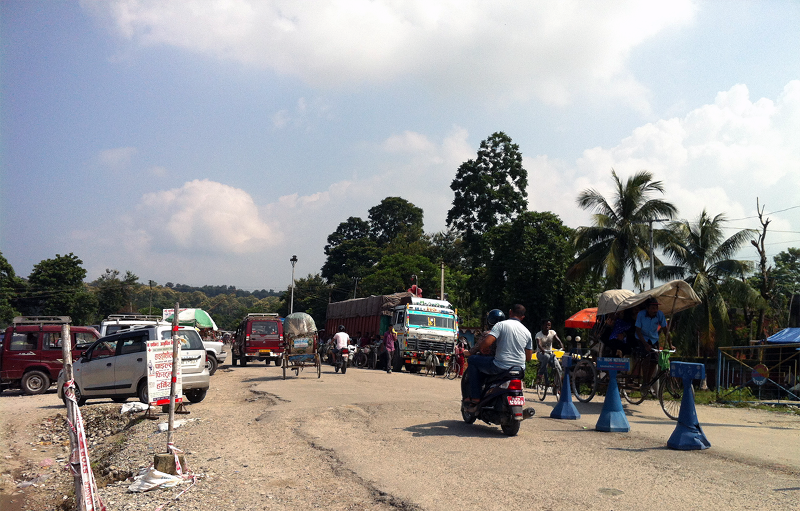
/bimala_feature_blog.webp)

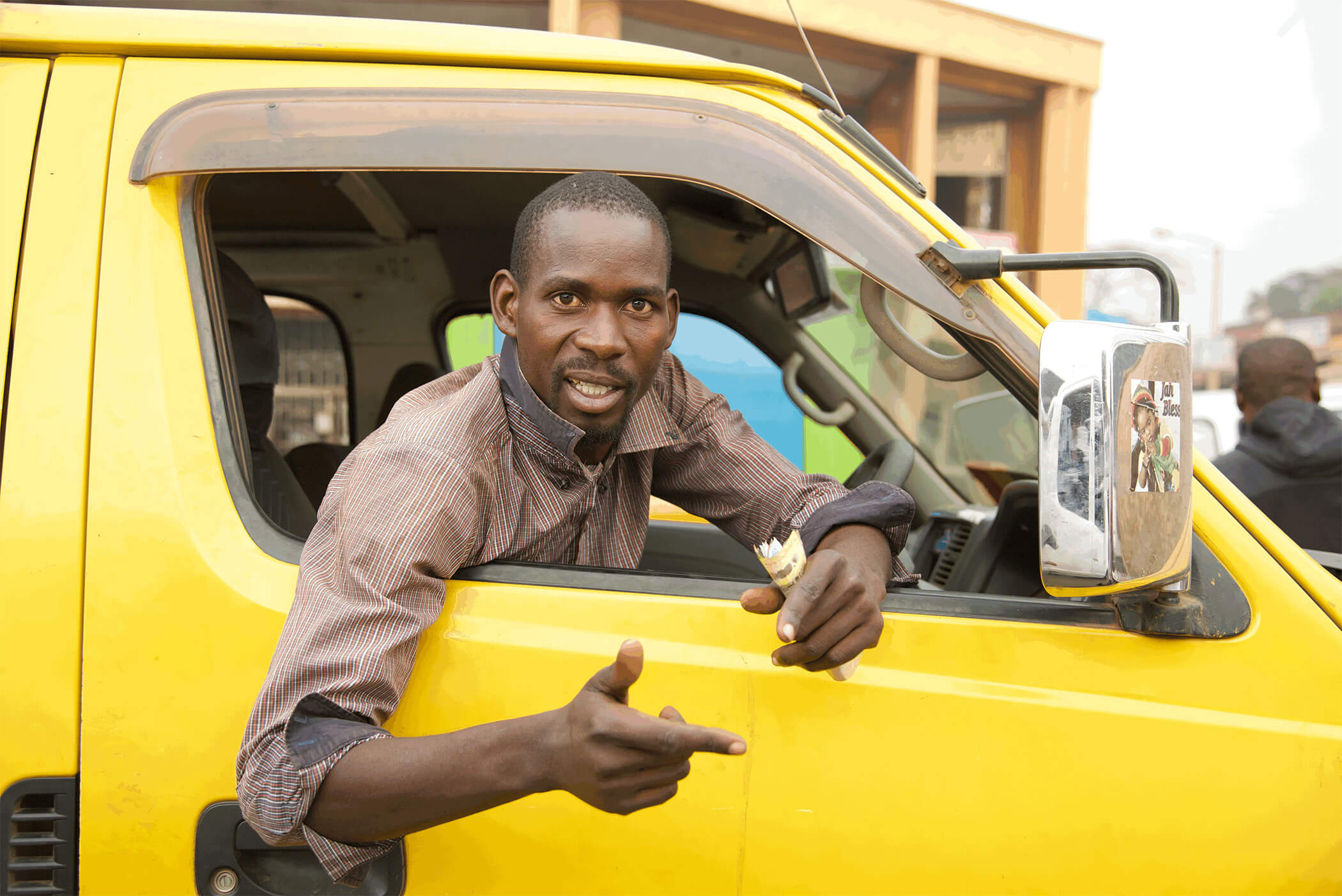
/boy_girl_asia_streets.webp)

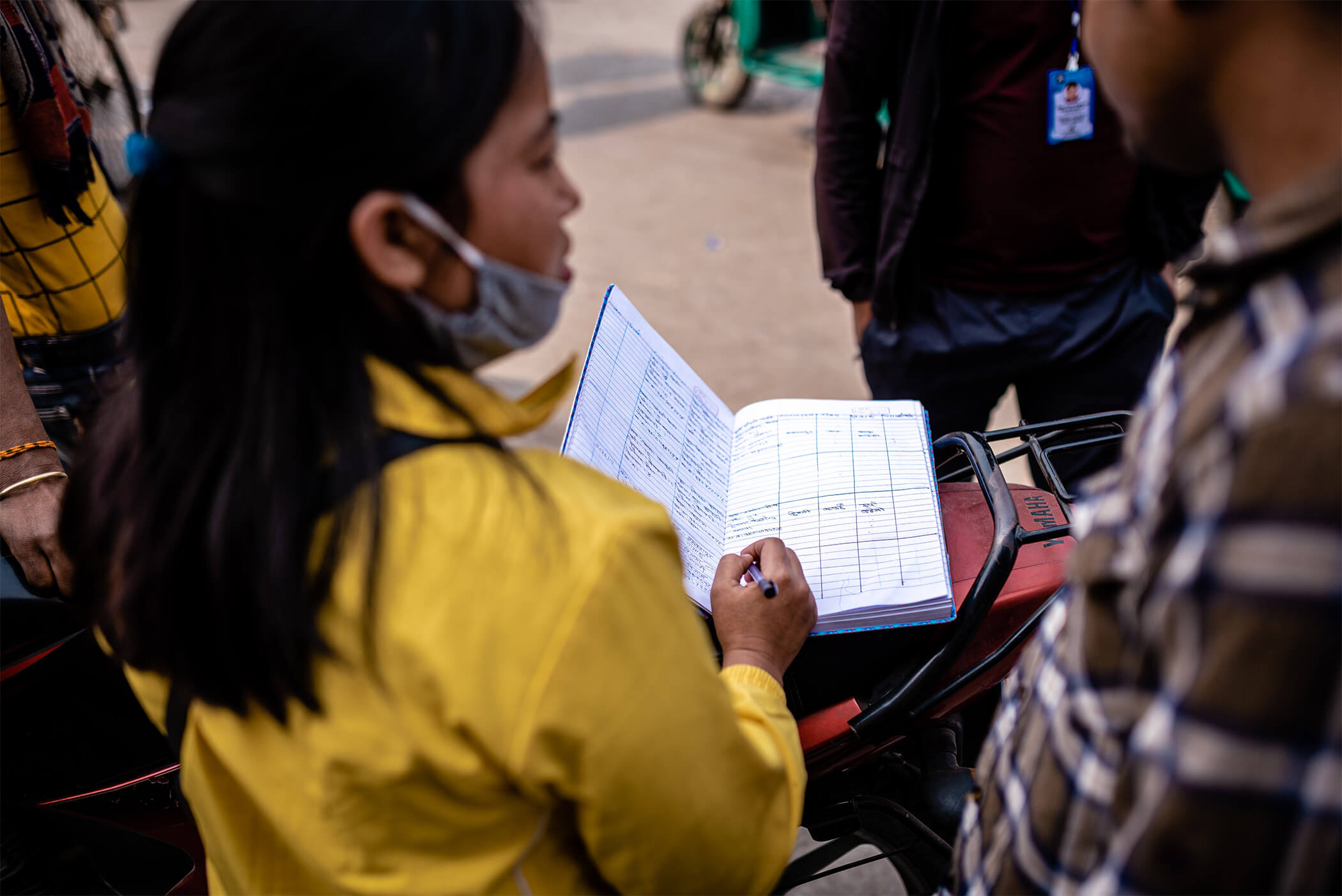
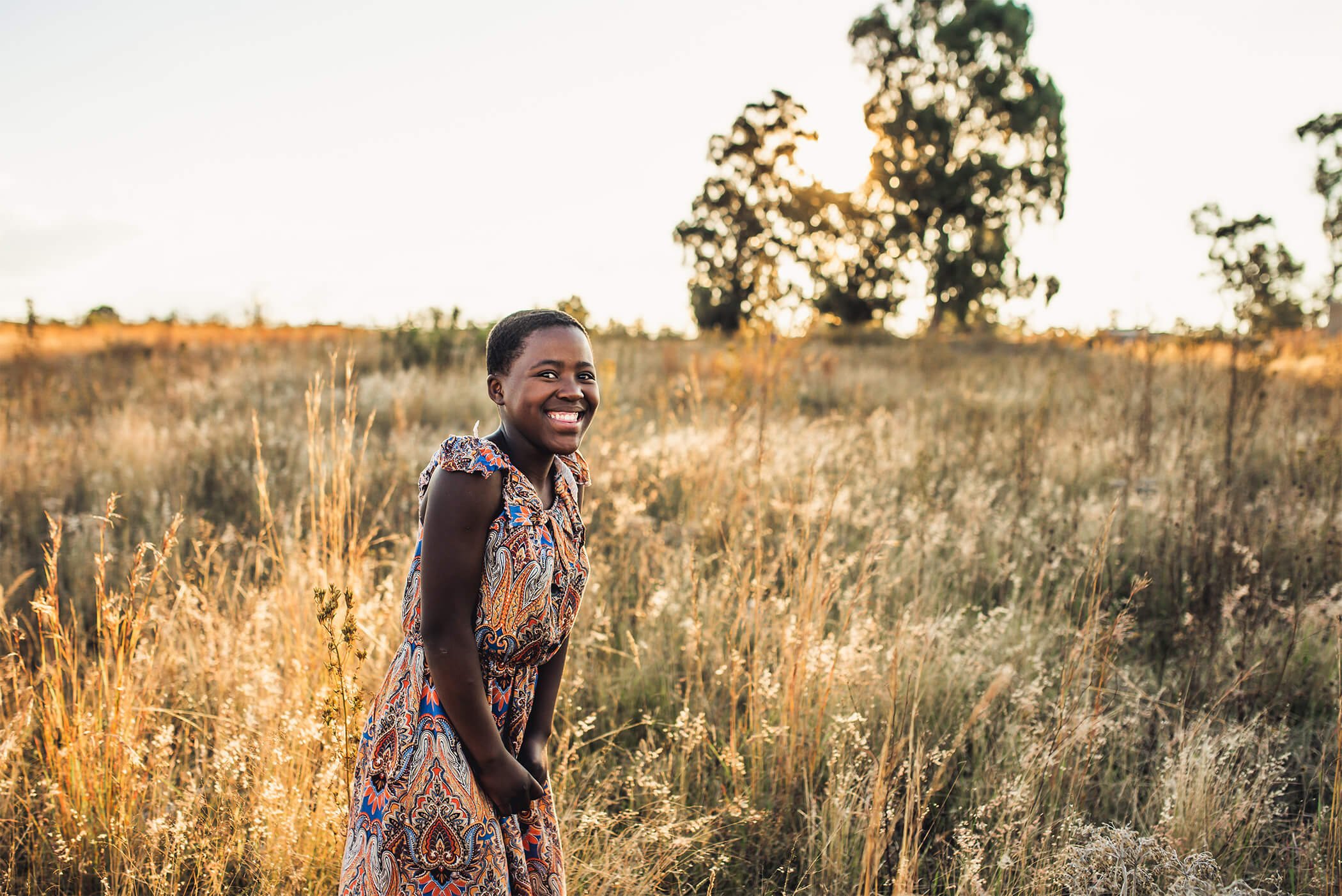
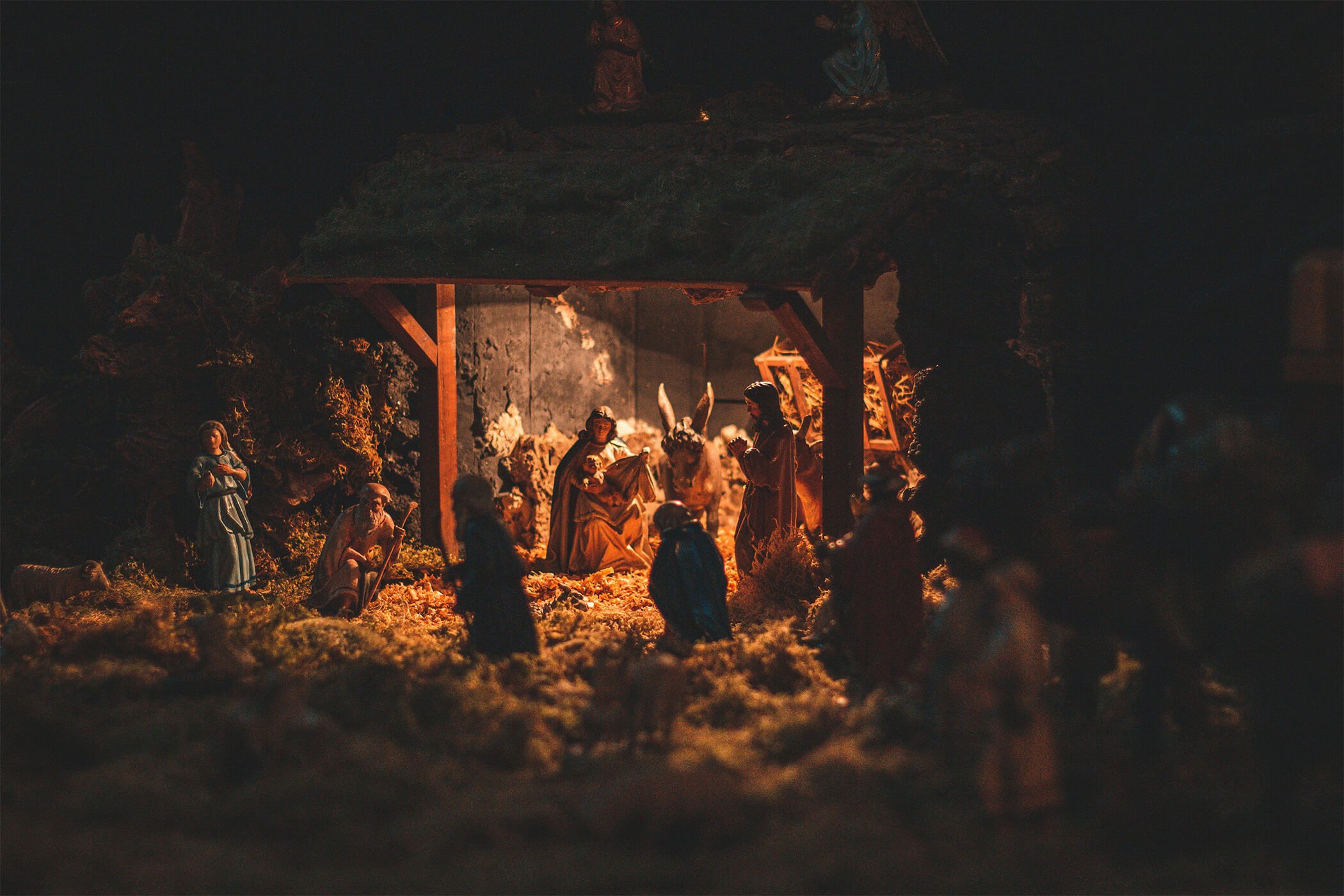
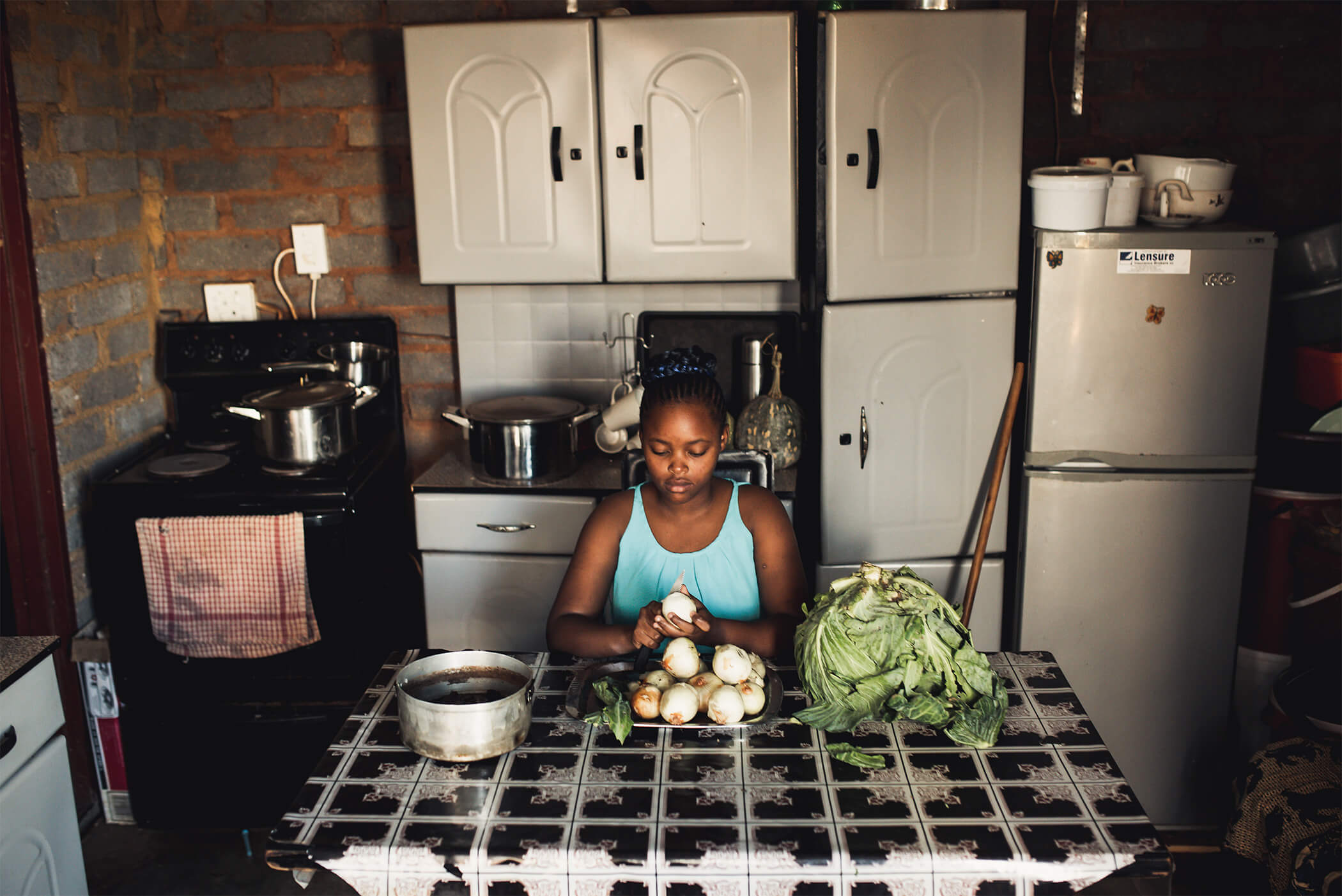

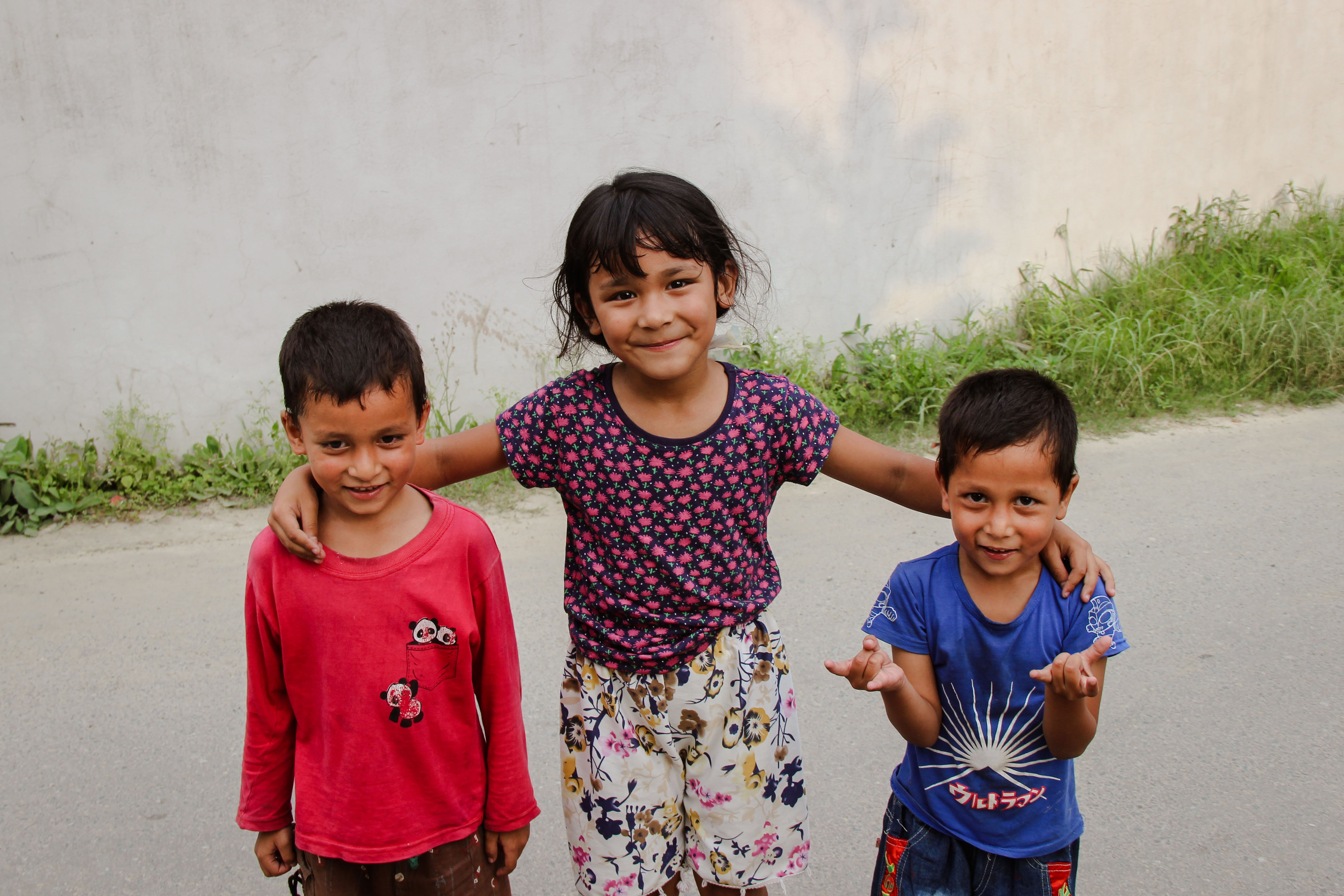
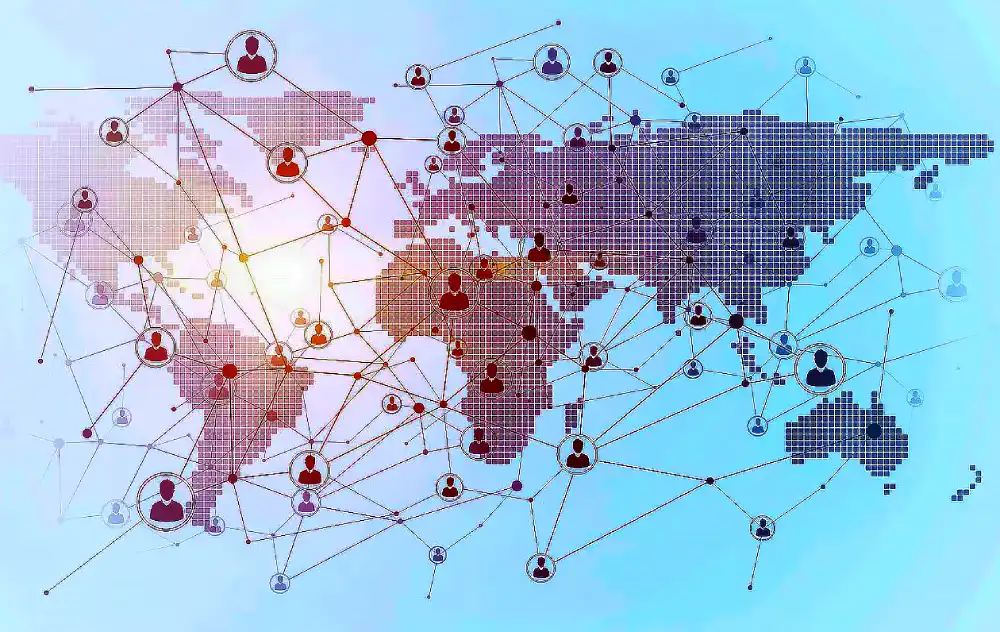
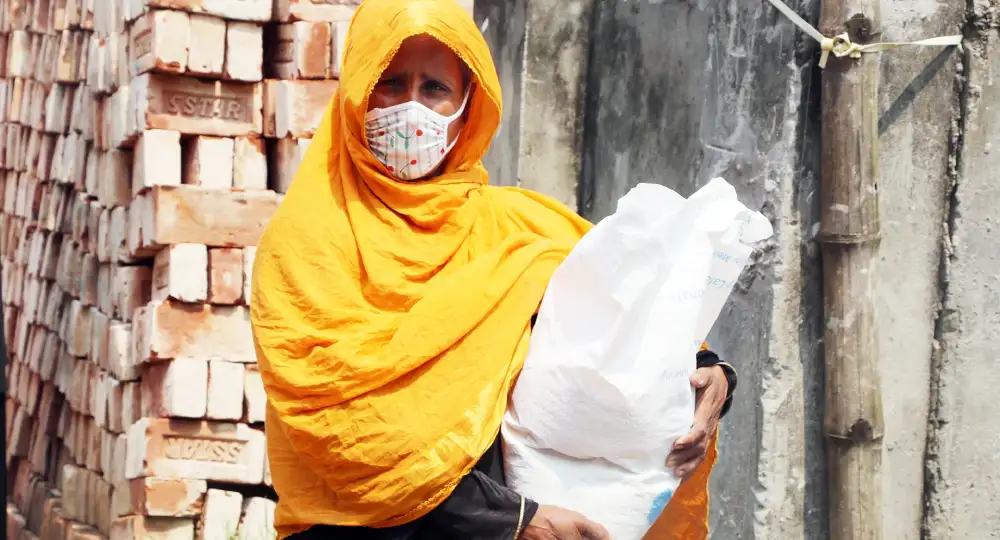
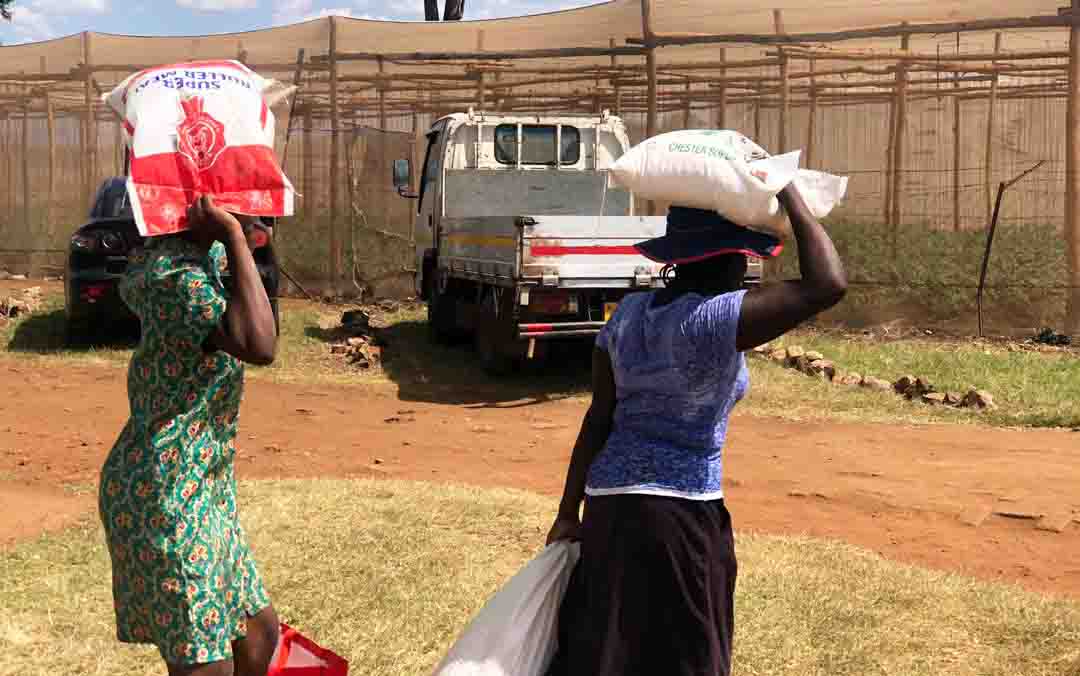
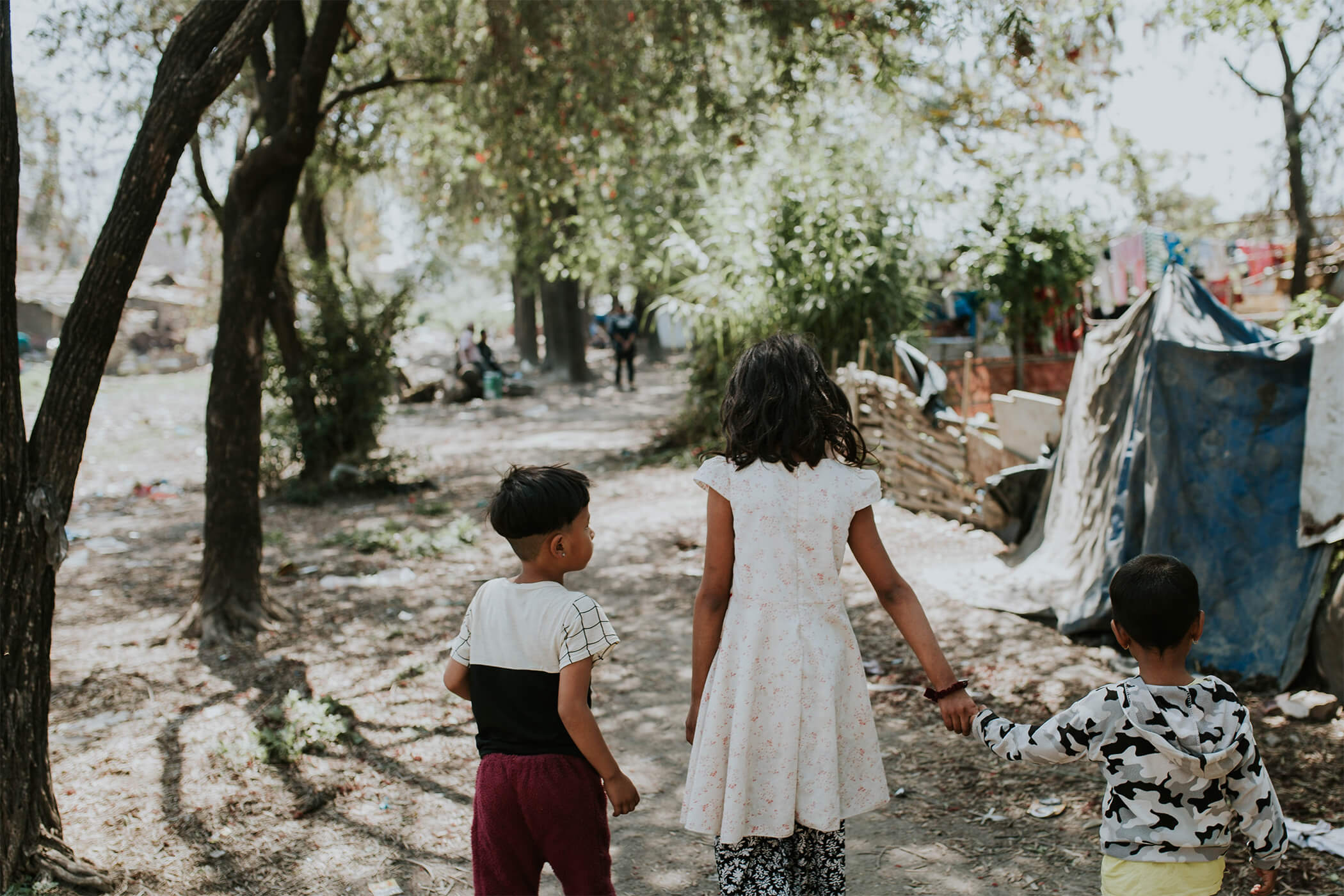
/police_uganda.webp)
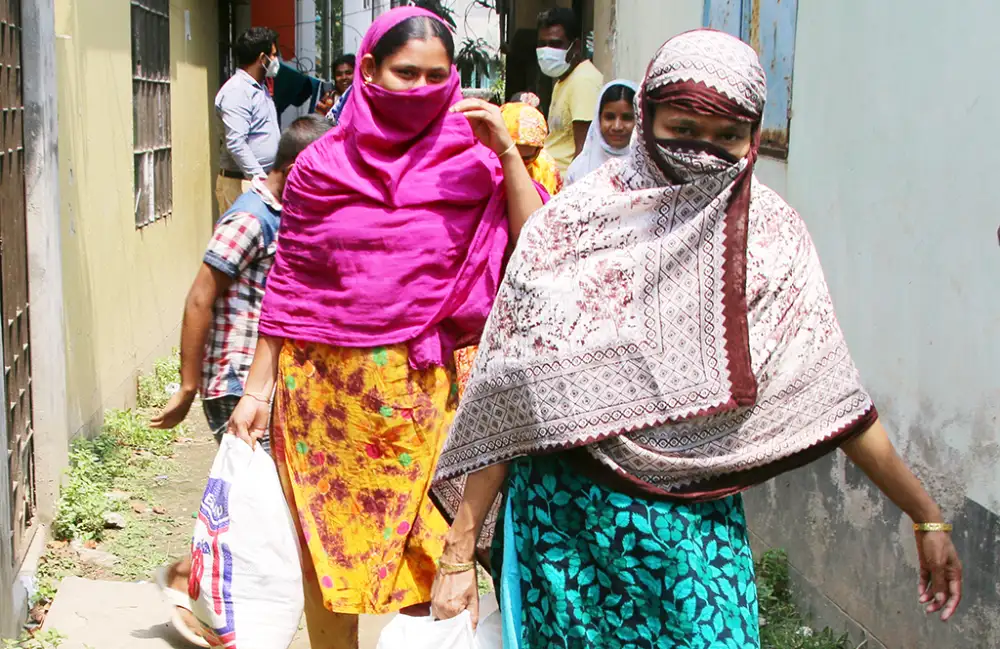
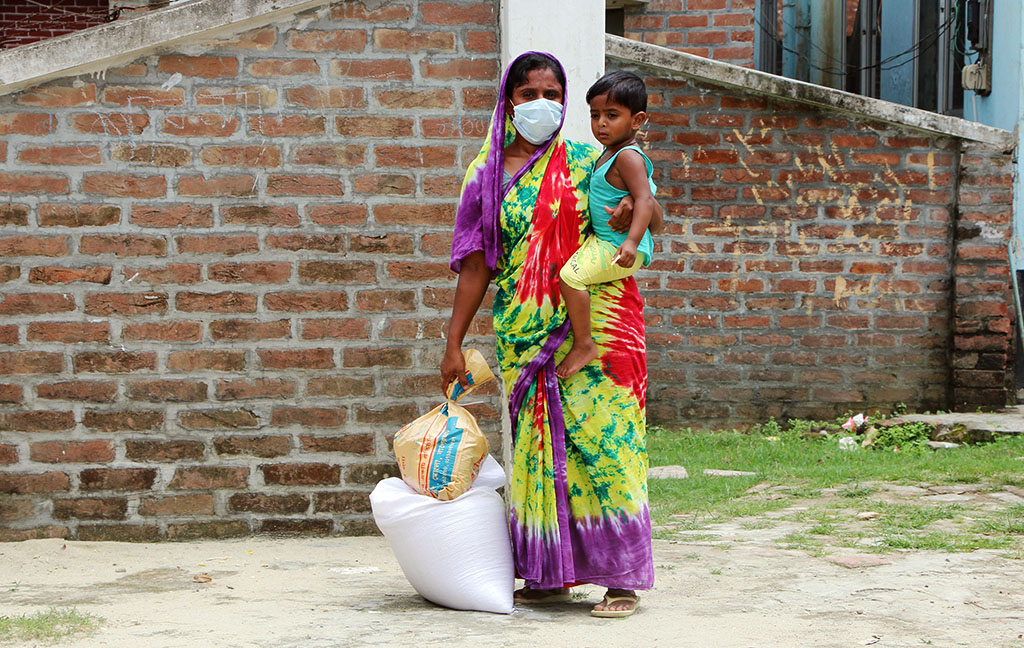
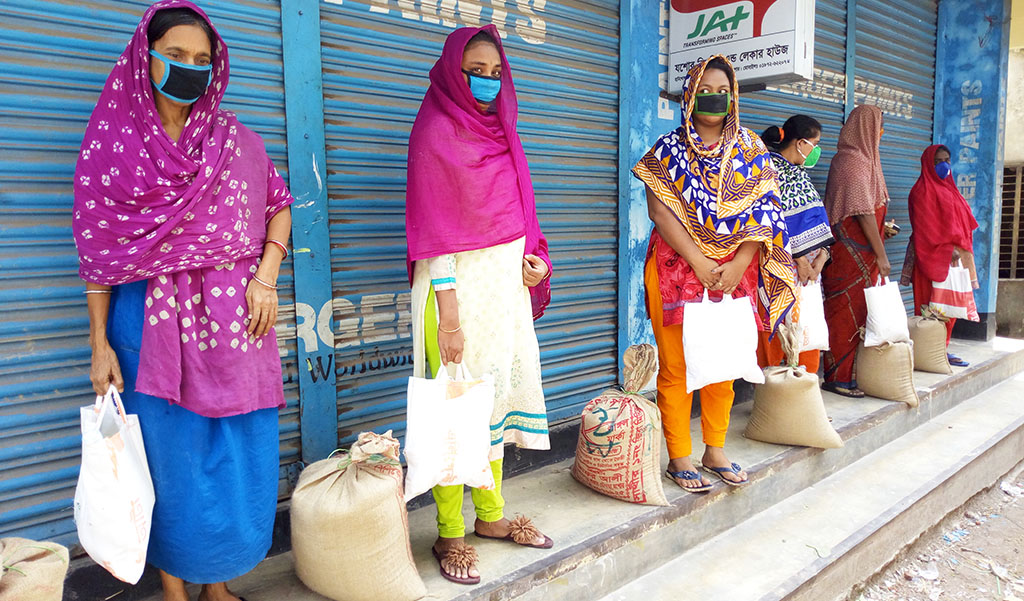
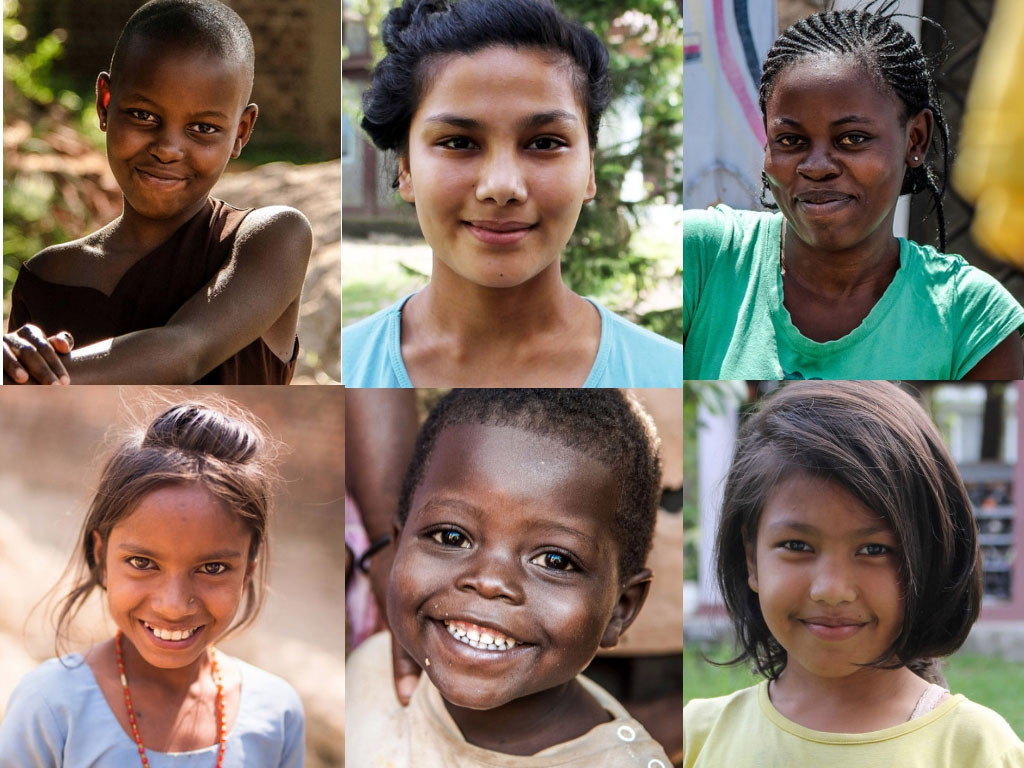
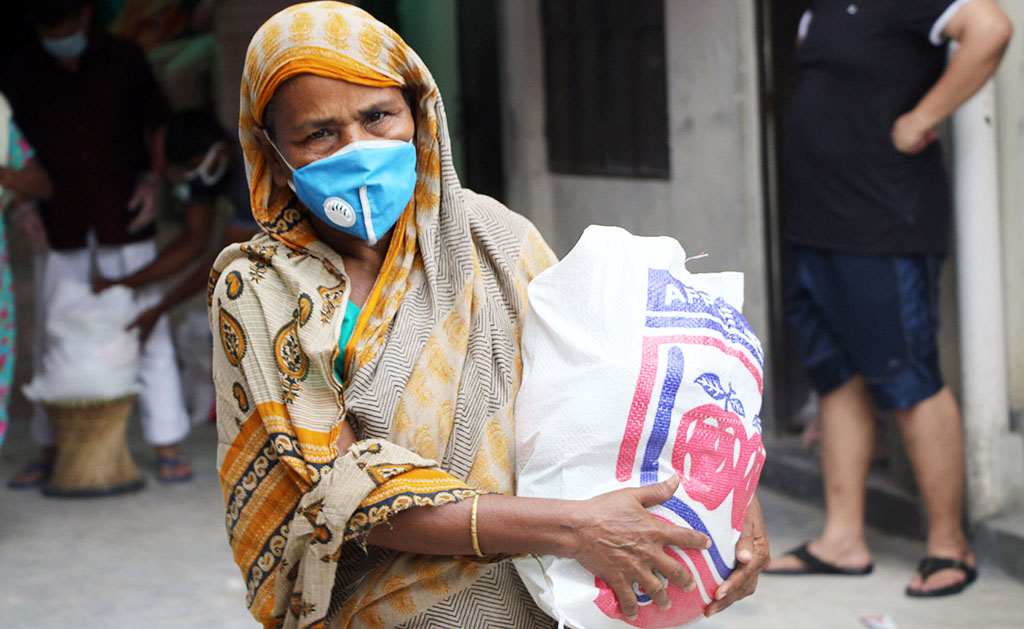




Post a comment